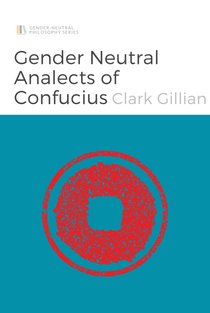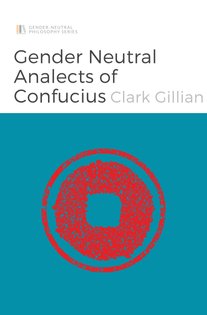The analects of Confucius
Lúnyǔ / 論語
🧧
子曰
為政以德,
譬如北辰,
居其所而眾星共之。
What Confucius Said:
Anyone who can lead and govern from a place of virtue can be compared to the North Star who holds its place and to whom all other stars turn.
🧧
子曰
詩三百,
一言以蔽之,
曰思無邪。
Said Confucius:
The Book of Songs contains three hundred poems, but they can all be summarized as follows.
Do not entertain corrupt thoughts.
🧧
子曰
道之以政,
齊之以刑,
民免而無恥;
道之以德,
齊之以禮,
有恥且格。
Confucius also said:
If people listen to the law for fear of punishment, then adhering to the law is nothing more than evading punishment.
That way there is no sense of duty.
But when the law is pursued because one sees the virtue of it and everyone agrees with the rules of decency, then a sense of duty arises.
Meanwhile, this also makes the people kindhearted.
🧧
子曰
吾十有五而志于學,
三十而立,
四十而不惑,
五十而知天命,
六十而耳順,
七十而從心所欲,
不踰矩。
What Confucius Said:
At fifteen I thought of nothing but studying.
When I turned thirty, I stood strong in what I had learned.
At the age of forty I had no more doubts.
When I turned fifty, I got in touch with Heaven.
At sixty my ear was obedient only to the truth.
And by the age of seventy I was able to follow what my heart desired without straying from my path.
🧧
孟懿子問孝。
子曰:
無違。
樊遲御,
子告之曰:
孟孫問孝於我,
我對曰無違。
樊遲曰
何謂也?
子曰
生事之以禮;
死葬之以禮,
祭之以禮。
Another philosopher once asked what filial piety actually means.
What Confucius said was:
Do not disobey.
Not long after, Confucius drove off and said to the driver:
Someone asked me what a child's duties are to his parents and I simply said "don't disobey."
The driver said:
Okay, but what do you mean by that?
Confucius replied:
When your parents are alive, try to serve them as decently as possible; and when they are gone, bury them as decently as possible.
Then continue to honor and commemorate as decently as possible.
🧧
孟武伯問孝。
子曰
父母唯其疾之憂。
Another philosopher also asked what the duties are as a son or daughter.
Said Confucius:
Parents worry when their children are sick.
🧧
子游問孝。
子曰
今之孝者,
是謂能養。
至於犬馬,
皆能有養;
不敬,
何以別乎?
Another philosopher asked what duty one has for their parents.
What Confucius Said:
Today this just means supporting your parents.
But often dogs and horses also share their food with their parents in the same feeder.
If you don't show appreciation and love in your support, how can you tell the difference between material support and moral support?
🧧
子夏問孝。
子曰
色難。
有事弟子服其勞,
有酒食先生饌,
曾是以為孝乎?
The question arose again what one can do as a child for the parents.
What Confucius Said:
The difficult thing about it is to tell if one performs for appearance only.
When parents have difficulties and the young always take the consequences upon themselves;
or if the young enjoy wine and good food more than their parents;
How can you call these things sincere respect?
🧧
子曰
吾與回言終日,
不違如愚。
退而省其私,
亦足以發。
回也,
不愚。
Said Confucius:
I've been talking to someone all day who agreed with everything I said - like he was stupid.
Now they have withdrawn and I have observed their behavior in my absence.
I noticed that they really apply everything I've said.
Anything but a fool, they are.
🧧
子曰
视其所以,
观其所由,
察其所安。
人焉廋哉?
Said Confucius:
Notice what someone actually does.
Note the motives.
Observe where that person comes to rest.
How then can anyone hide their character?
🧧
子曰
溫故而知新,
可以為師矣。
Said Confucius:
If a person continues to cherish everything they have learned and can still learn something new from it,
then surely they are able to teach others!
🧧
子曰
君子不器。
What Confucius Said:
The accomplished student is not a tool.
🧧
子貢問君子。
子曰
先行其言,
而後從之。
Another philosopher asked what makes a person civilized.
What Confucius said was:
One who acts before speaking,
And speaks according to their actions.
🧧
子曰
君子周而不比,
小人比而不周。
Said Confucius:
The learned believe without denying.
A narrow-minded person rejects without believing.
🧧
子曰
學而不思則罔,
思而不學則殆。
Said Confucius:
Learning without thinking is meaningless.
Thinking without learning is dangerous.
🧧
子曰
攻乎異端,
斯害也已!
What Confucius also said:
Excessive fascination of the bizarre can be dangerous!
🧧
子曰
由!
誨女知之乎?
知之為知之,
不知為不知,
是知也。
What Confucius also said:
You!
Shall I explain to you what knowledge is?
Once you know a thing,
Trust that you know it;
And if you don't know it,
Allow yourself to have yet to know it.
This is knowledge.
🧧
子張學干祿。
子曰
多聞闕疑,
慎言其餘,
則寡尤;
多見闕殆,
慎行其餘,
則寡悔。
言寡尤,
行寡悔,
祿在其中矣。
Once upon a time there was someone who was studying hard in order to get a prestigious position later on.
What Confucius said was:
Above all, listen,
and put aside the things you doubt;
at the same time,
speak carefully about everything else.
That way you will avoid many foolish statements and no one can correct you afterwards.
Above all, be vigilant, and set aside all things that seem dangerous to you.
At the same time, be careful who spend time with - that way you will avoid a lot of bad behavior you would have regretted afterwards.
If a person avoids foolish statements,
And has little reason to regret foolish behavior,
Then that person deserves a prestigious position.
🧧
哀公問曰
何為則民服?
孔子對曰
舉直錯諸枉,
則民服;
舉枉錯諸直,
則民不服。
Now there was a board member who asked:
How can I best control the people I manage?
What Confucius said was:
Promote the good-hearted and set aside the wicked, and the people will become compliant.
Promote the wicked and set aside the good-hearted and then the people will begin to oppose.
🧧
季康子問
使民敬、
忠以勸,
如之何?
子曰
臨之以莊則敬,
孝慈則忠,
舉善而教不能,
則勸。
A ruler asked how the people could remain faithful and pay tribute, with respect for virtue.
Said Confucius:
Let the ruler rule with earnest seriousness, and the people will honor them.
Let the ruler be both firm and sympathetic at the same time, and the people will remain faithful.
Let the ruler promote the competent and give the incompetent opportunities to learn, then they will line up to study virtue.
🧧
或謂孔子曰
子奚不為政?
子曰
書云
孝乎惟孝、
友于兄弟,
施於有政。
是亦為政,
奚其為為政?
Someone suddenly addressed Confucius with the words:
Sir, why aren't you active on the board?
What Confucius then said was:
The Book of Books says the following:
You are brotherly when you release your brother from his obligations.
This also applies here.
Am I not that brother of the present administration, stripped of his obligations?
🧧
子曰
人而無信,
不知其可也。
大車無輗,
小車無軏,
其何以行之哉?
What Confucius Said:
I don't understand how anyone can go through life without sincerity.
How can oxen pull a covered wagon without a crossbeam or how can horses pull a carriage without reins?
🧧
子張問
十世可知也?
子曰
殷因於夏禮,
所損益,
可知也;
周因於殷禮,
所損益,
可知也;
其或繼周者,
雖百世可知也。
Someone asked if we can really know how everything was run ten centuries ago.
Said Confucius:
The Yin dynasty followed the rules of the Xia dynasty, we can retrace see what they added or left out.
The Zhou dynasty followed the rules of the Yin dynasty, we can also check here what they added or left out.
Others may still follow the Zhou dynasty, but even though hundreds of years have passed, we can still trace how they handled their rule!
🧧
子曰
非其鬼而祭之,
諂也。
見義不為,
無勇也。
What Confucius Said:
Someone who makes sacrifices to a statue that has no personal connection with him or her is only flattering himself.
To sense what is appropriate and what is not depends on your courage.
🧧




